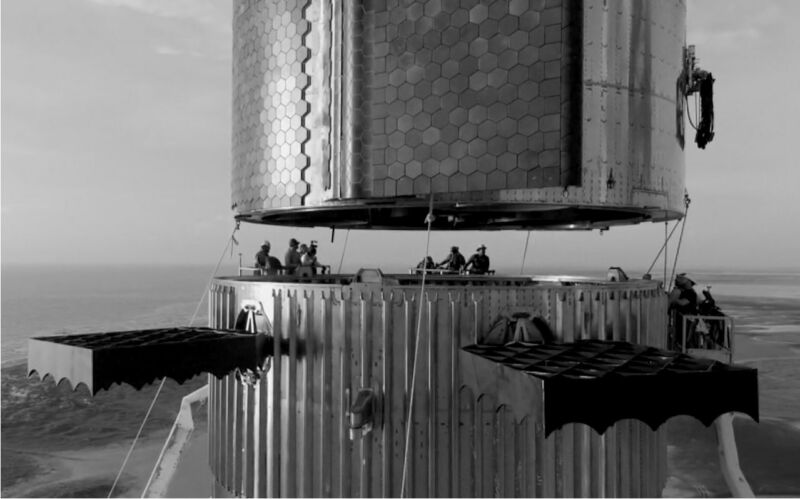
Enlarge / Workers perform a fit check with Starship (above) and the Super Heavy booster. (credit: Elon Musk/Twitter)
Nearly a century ago, humans built skyward for the first time at an unprecedented rate. It was the age of skyscrapers.
During the half-century before 1920, the US population doubled. At the same time, the Industrial Revolution simmered, reaching a boil as America leaned into World War I and produced the machines and material to fight in Europe. After the war, the population growth and significant gains in industrial productivity led to a dramatic rise in office space needs—from 1870 to 1920, the demand for US office space increased ten-fold.
As a result, with this high demand and cheap financing, skyscraper construction soared during the Roaring Twenties. First the 71-story Bank of Manhattan Trust Building, with 71 floors, went up in New York City. This was followed by the Chrysler Building, with 77 floors, and finally the Empire State Building, with 102 floors.
